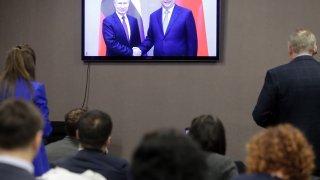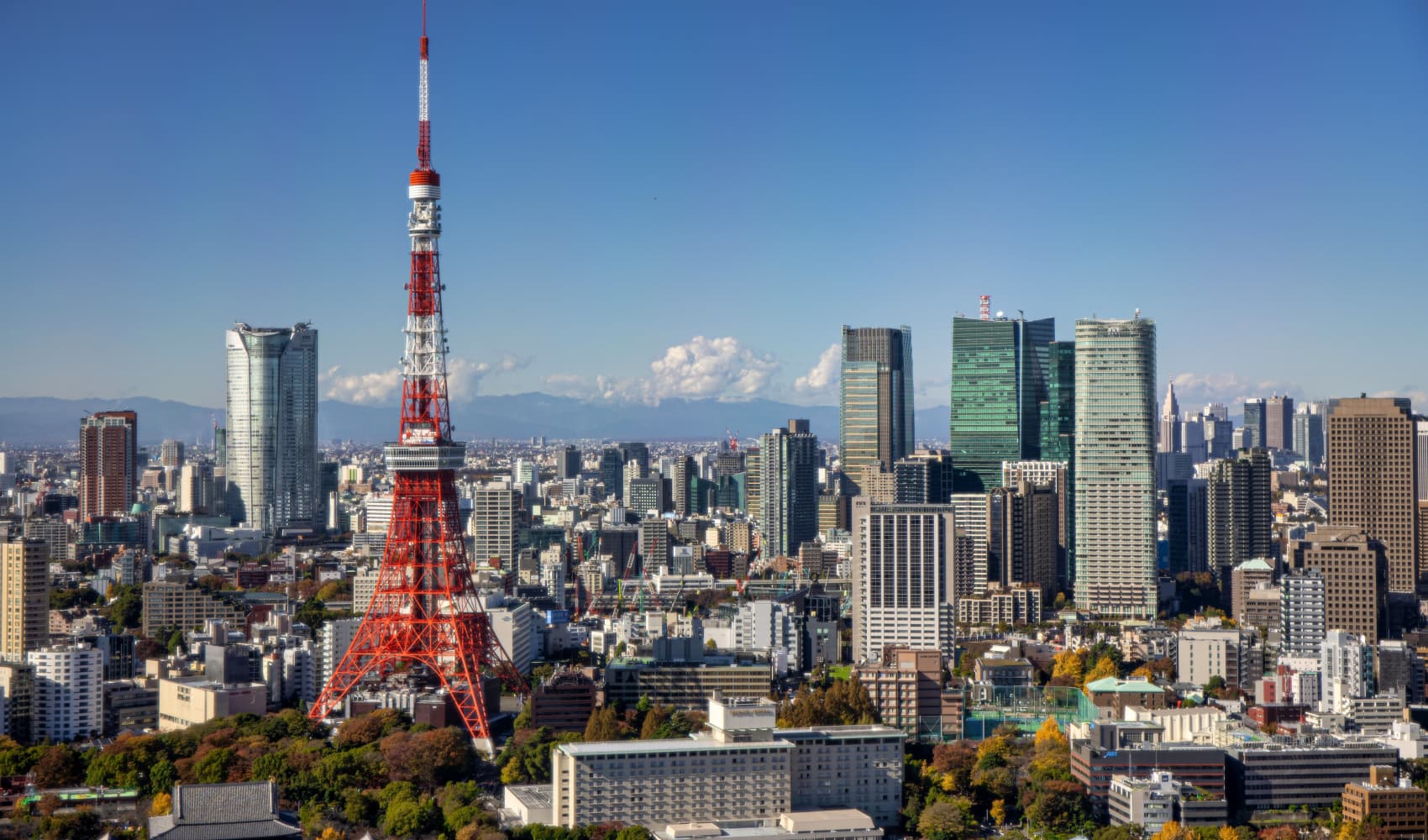
Brace yourself for 2022, a year of living dangerously.
Many of the world's most profound gains of the post-World War II era will be tested. The security of Europe and Asia, the resilience of democratic governance, the advance of open markets, the sanctity of individual rights and the certainty of human progress all are in the balance.
Never in the 30 years since the Cold War's end has a U.S. president entered a new year confronting such an explosive brew of geopolitical and domestic political uncertainty. They are intertwined like a Gordian knot that only bold action can untangle.
The convergence of these external and internal perils, amid deep U.S. political divisiveness and international diffidence, raises the difficulty level for any effective response.
Get Tri-state area news and weather forecasts to your inbox. Sign up for NBC New York newsletters.
Then layer onto all that the most disturbing rise of inflation in three decades and the persistent torment of Covid-19. Add to that the certainty that all these issues will drive an even greater wedge between rich and poor countries and peoples, and increased global volatility seems inevitable.
All that said, these are the three external factors that should concern us most immediately in 2022:
A revanchist Russia is bent on regaining control of Ukraine; China, similarly, is escalating its threats to Taiwan's independence (don't fool yourself that Ukrainian and Taiwanese freedoms can be separated); and Iran is so rapidly moving toward nuclear-weapons breakout capability that Israel may be forced to respond.
Money Report
These dangers are escalating at a time when Chinese, Russian and Iranian leaders alike – having witnessed the Biden administration's withdrawal from Afghanistan and its understandable focus on domestic issues – may see 2022 as the best moment yet to advance their geopolitical ambitions.
The optimists among us can take some comfort in the fact that there is a possible path through this briar patch. Advances in technology, health care, and wider human access to knowledge may very well usher in a new epoch of global progress.
There's also more than enough evidence that democracies, particularly the United States, have sufficient resilience to rebound and regroup.
History also has shown that the most authoritarian forms of government prove ultimately to be the most fragile.
China's remarkable rise as the world's first capitalist-communist experiment is running up against a series of setbacks, mostly self-inflicted.
President Xi Jinping is doubling down on domestic repression and reinforcing Communist Party control over China's most successful companies, particularly in the technology space. In so doing, he is choking them off from international financial markets – and he may be killing the panda that laid China's economic miracle.
Vladimir Putin's Russia seems to be a country on the march, pumped up by spiking energy prices and geopolitical muscle-flexing from Syria to the Donbas. However, the weight of existing and new economic sanctions, Russia's demographic challenges, and an economy entirely reliant on energy will hamstring Putin's aspirations to undo the humiliations of his lifetime.
In a documentary that aired on Russian television last Sunday, Putin said the fall of the Soviet Union three decades ago remained a tragedy for most of his fellow citizens. He talked for the first time publicly about how he had to work driving a taxi during that period to make ends meet.
"After all, what is the collapse of the Soviet Union?" he asked. "This is the collapse of historical Russia under the name of the Soviet Union."
Regarding Iran, how much longer can the regime endure -such rampant corruption? The republic has produced so few goods for its people, while engaging in countless, expensive adventures abroad – in Iraq, Yemen, Syria, Lebanon and elsewhere in the Middle East.
Yet perhaps this all points to the greatest danger of 2022: the swirl of uncertainties around the United States. Adversaries and allies alike question our internal cohesiveness and our external capability and willingness to act.
The glue that has held the global system together during most of the period after WWII, the United States, looks unstuck to many in the world. America doesn't want China or anyone else to replace its traditional global leadership role, and it's not retiring from the scene. But it's struggling to find updated and effective means to shape world affairs.
To be fair, the Biden administration and its remarkably accomplished foreign relations team diagnosed each of these challenges early and brilliantly.
Indeed, in this space a year ago, I wrote, "Joe Biden has that rarest of opportunities that history provides: the chance to be a transformative foreign policy president."
In March, Biden himself declared, "Our world is at an inflection point. Global dynamics have shifted. New crises demand our attention. … One thing is certain: we will only succeed in advancing American interests and upholding our universal values by working in common cause with our closest allies and partners, and by renewing our own enduring sources of national strength."
It's never easy to turn rhetoric into execution, but that is what 2022 needs to be about. A president's first year in office is always messy, and this one has been particularly so.
The true test of Biden's second year will be less over whether his administration understands the historic nature of the challenges (it does) and more about whether it can organize itself domestically and internationally to manage 2022's geopolitical challenges.
Worse than questioning our values, our partners and allies are worried about our capability and competence to act.
This year of living dangerously will get off to a brisk start with the Winter Olympics in Beijing and more Russian troop movements near Ukraine. It will wrap up with a Chinese Communist Party Congress likely to make Xi leader for life and U.S. midterm elections.
In this year of living dangerously, however, it may be the U.S., more than any other actor, whose actions and inactions will drive the plot.
—Frederick Kempe is the President and Chief Executive Officer of the Atlantic Council.






